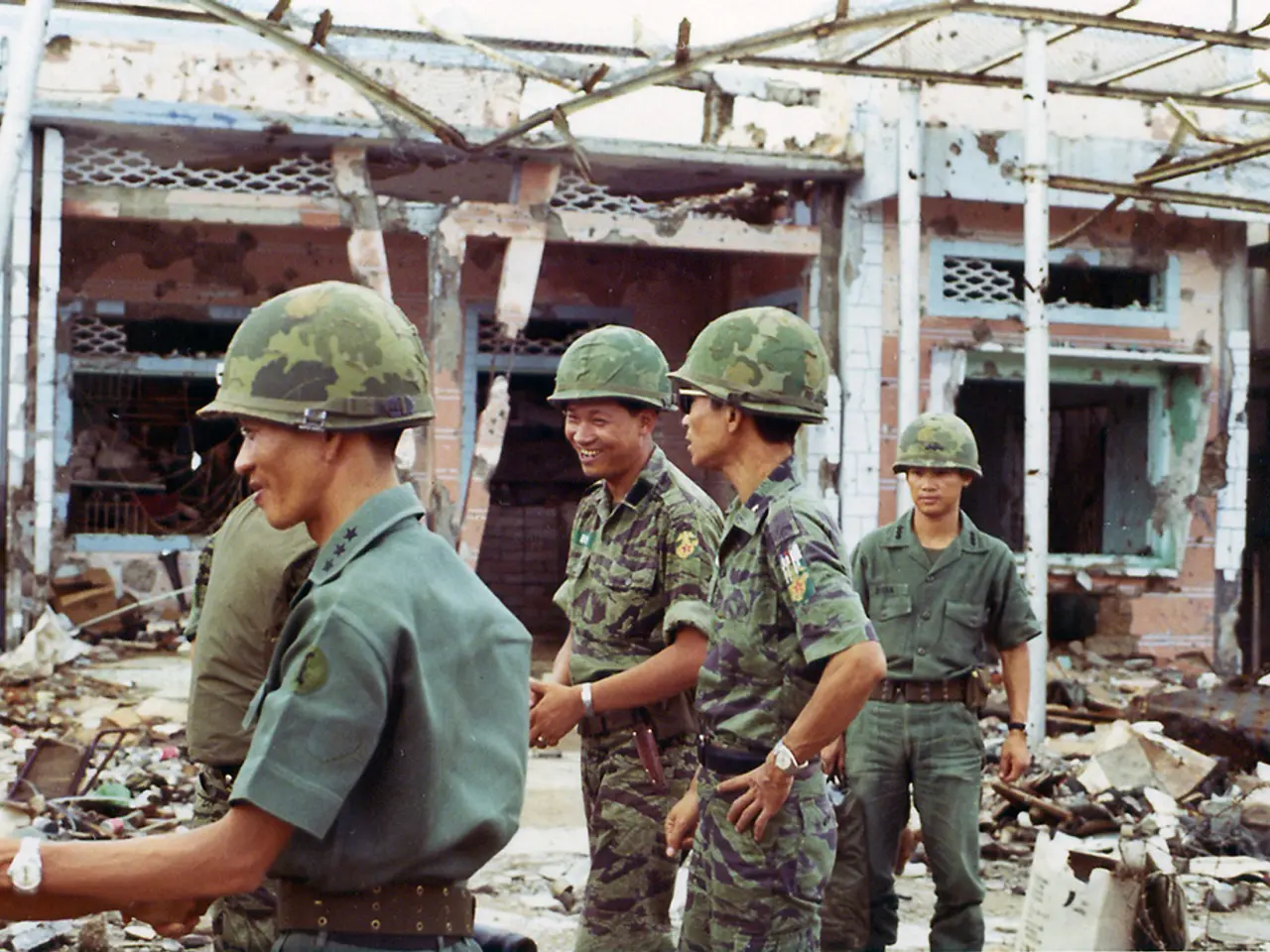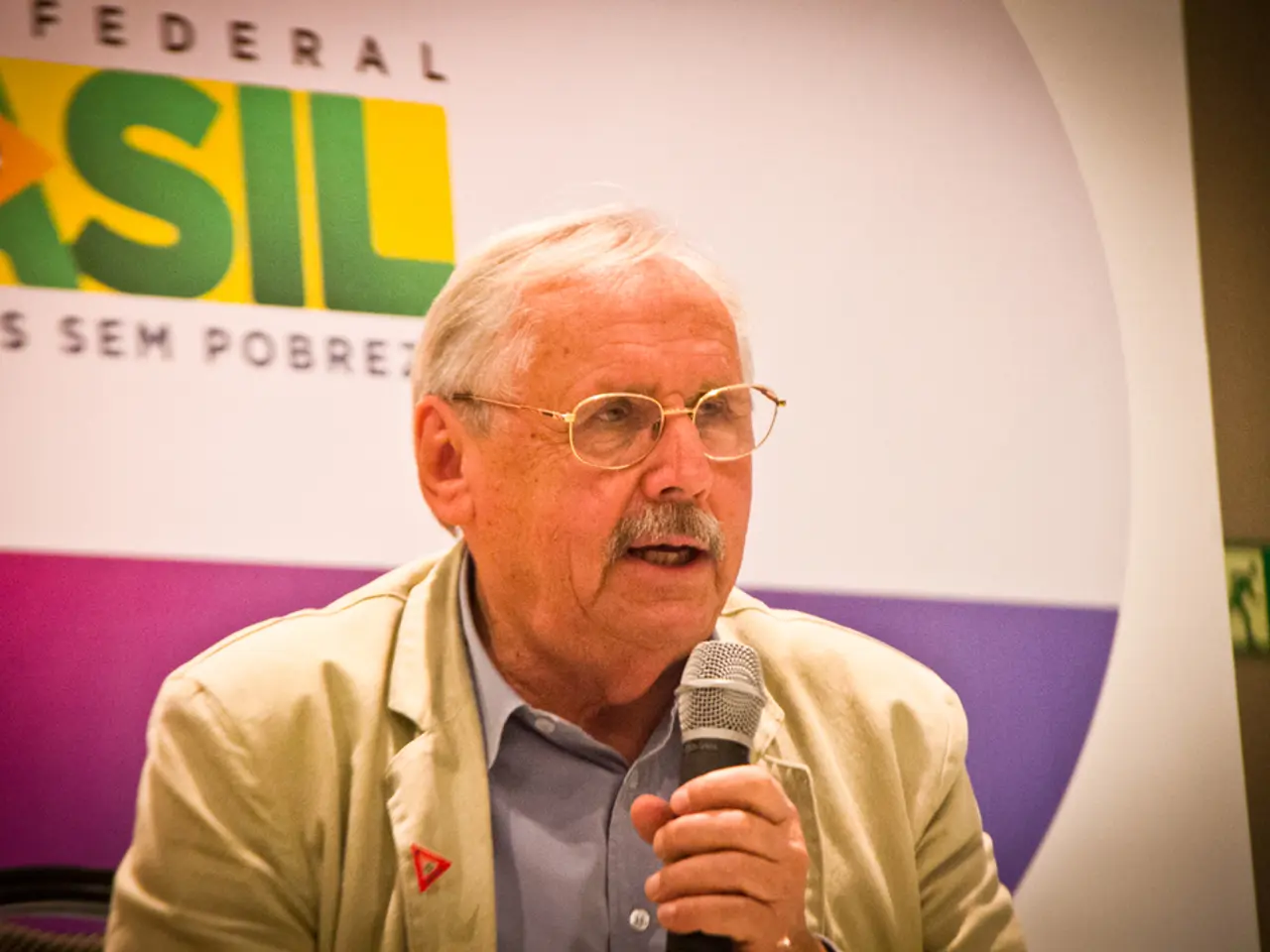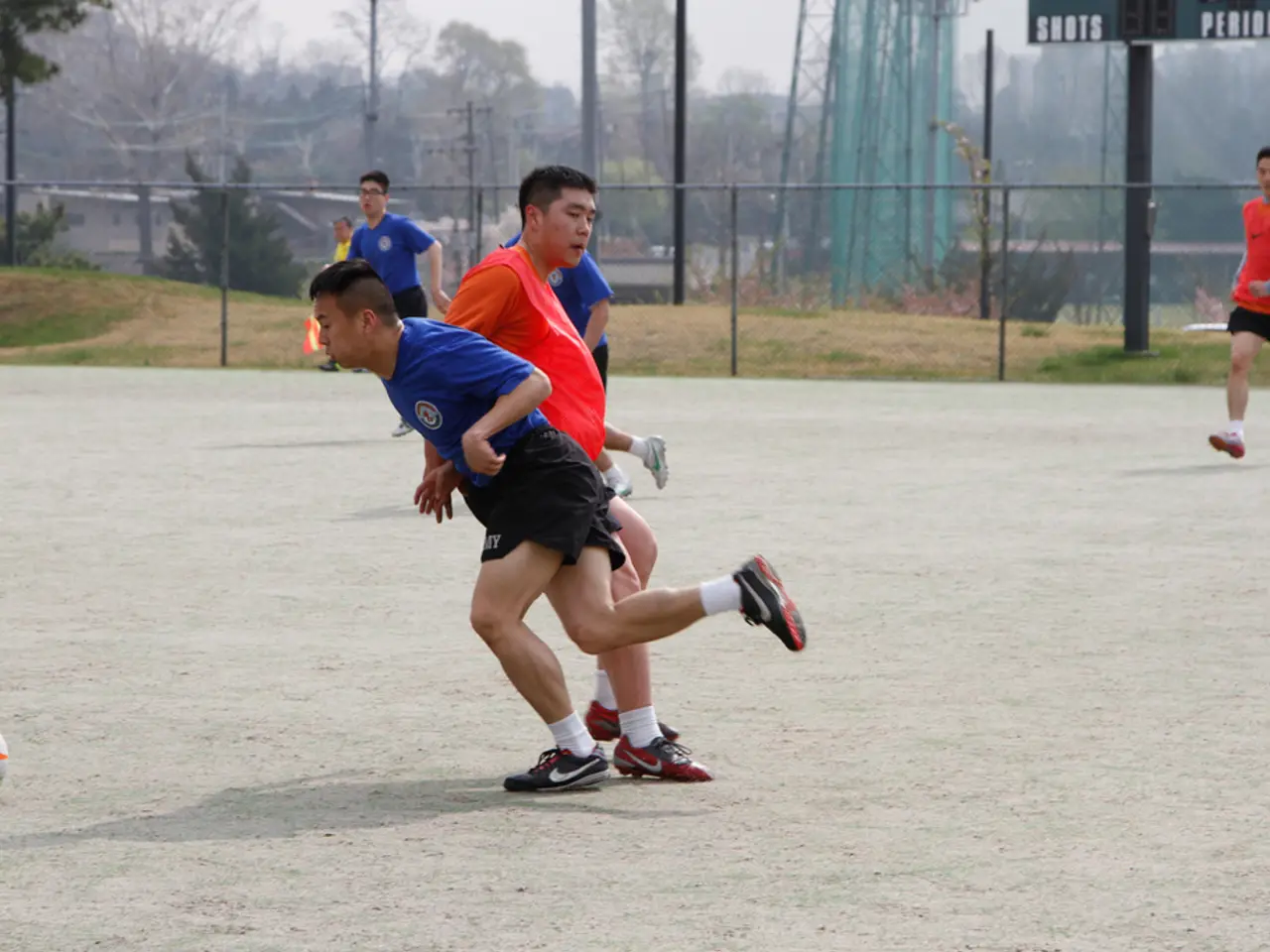Syrian violence leads to loss of approximately 90 lives - Violence in Syria erupts anew, leaving over 90 casualties
In the heart of Syria's Suwayda province, sectarian violence has erupted between Druze armed groups and Bedouin tribal fighters, resulting in a substantial loss of life and international concern.
The conflict began on July 12, 2025, following an incident involving the robbery of a Druze vegetable merchant by Bedouin tribes on the Damascus–Suwayda highway. This led to retaliatory kidnappings and escalated into armed confrontations between the two groups.
The violence has claimed the lives of at least 89 people, with varying reports on the death toll. The Syrian Ministry of Defense reported at least 30 deaths and nearly 100 injuries, while the Syrian Observatory for Human Rights estimated the death toll at around 40. Other sources indicated that at least 37 people were killed, with more than 100 injured. The highest reported death toll was 89, as clashes raged for a second day.
Among the dead are 50 members of the Druze minority, 18 Bedouins, and 14 government soldiers. The violence has not only caused significant human suffering but also led to the destruction of homes and farms, further exacerbating tensions in the region.
The ongoing clashes have international implications, particularly given the involvement of external actors. Israel reportedly struck several tanks in Suwayda, citing concerns over the safety of the Druze community. This intervention highlights the complex geopolitical landscape surrounding the conflict.
The situation poses significant challenges for Syria's interim leader, Ahmad al-Sharaa, who faces pressure to stabilize the country and rebuild trust among its fragmented communities. The Kurdish-led Syrian Democratic Forces (SDF) have also condemned the attacks, expressing deep concern over the impact on civilians in the region.
The Syrian Ministry of Defense is working with Druze leaders and the governor of Suwaida to calm the situation, while the new Syrian government has promised "Syria for all," but there have been repeated incidents of sectarian violence since they took office, causing hundreds of deaths.
The different religious traditions of Sunni Muslims, Alawites, Druze, and Yazidis continue to fuel tensions in the country. A previously unknown jihadist group, Saraya Ansar al-Sunna, has claimed responsibility for a suicide attack on a church in Damascus, killing at least 25 people and injuring over 60 others. The group has threatened further attacks.
Many Druze live in Israel, where they serve voluntarily in the army and are considered allies by the Jewish state. The Syrian Ministry of Defense has sent military units to stop the violence and protect civilians.
Despite the fall of Bashar al-Assad in December, Syria remains divided and far from reconciliation of its ethnic groups and lasting stability. The goal is to restore security and stability in Suwaida, a shared responsibility between the state and its citizens.
- The Commission, in its role of formulating policy and legislation, has also been consulted on the draft directive concerning worker protection, given the international concern over the adverse effects of war-and-conflicts, such as those in Syria, on the general wellbeing and safety of the population.
- Meanwhile, in the realm of domestic politics, Syria's interim leader, Ahmad al-Sharaa, is grappling with the aftermath of the violent clashes in Suwayda province, seeking to address the complex issues of policy-and-legislation, aimed at promoting peace and preventing further sectarian strife among the country's diverse religious communities.






